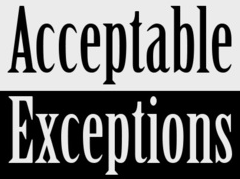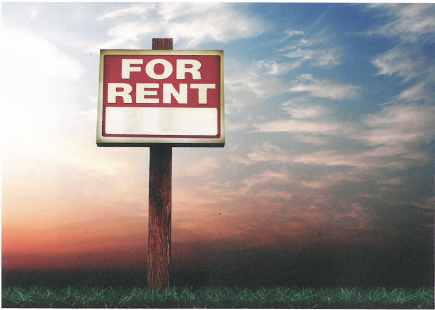By the Community Association Attorneys at SwedelsonGottlieb
 Under Civil Code Section 714, a California community association can restrict its members’ installation and use of solar energy systems so long as the restrictions do not significantly increase the cost of the system or significantly decrease its efficiency or specified performance. “Significantly” used to be defined (through 12/31/14) as increasing the costs of the system by 20% (or $2,000 for photovoltaic systems) or decreasing the efficiency of the system by 20%.
Under Civil Code Section 714, a California community association can restrict its members’ installation and use of solar energy systems so long as the restrictions do not significantly increase the cost of the system or significantly decrease its efficiency or specified performance. “Significantly” used to be defined (through 12/31/14) as increasing the costs of the system by 20% (or $2,000 for photovoltaic systems) or decreasing the efficiency of the system by 20%.
AB 2188, effective January 1, 2015, redefines what reasonable restrictions an Association can require and amends Civil Code Section 714. Specifically, the new law has cut by half an association’s ability to restrict solar energy systems installed by members. A significant increase in the costs of a system will now mean an increase of 10% (or $1,000 for photovoltaic systems), and a significant decrease will now mean a reduction in the efficiency of the system by 10%. An association must now be even more careful with the conditions or limitations it places on an owner who wants to install a solar energy system.





 Most associations have provided transfer disclosures/documents to an escrow at some point when an owner is selling his or her unit/home or property in a community association to a prospective purchaser. This task is usually completed by the association’s managing agent. Sections 4528 and 4530 of the Civil Code govern the requirements for complying with an Association’s escrow disclosure requirements. AB 2430, which amends Civil Code Sections 4528 and 4530 and is effective as of January 1, 2015, now provides some helpful points of clarification and one major affirmation of California case law.
Most associations have provided transfer disclosures/documents to an escrow at some point when an owner is selling his or her unit/home or property in a community association to a prospective purchaser. This task is usually completed by the association’s managing agent. Sections 4528 and 4530 of the Civil Code govern the requirements for complying with an Association’s escrow disclosure requirements. AB 2430, which amends Civil Code Sections 4528 and 4530 and is effective as of January 1, 2015, now provides some helpful points of clarification and one major affirmation of California case law.  A manager at a planned development community association we represent contacted me regarding a dispute with an owner. The board was refusing to allow the owner to make a change to the common area solely because the owner had made a change without first submitting a plan and obtaining the required prior approval. I was informed that the board was refusing to provide approval as punishment for the owners’ actions. And the board was doing this despite the fact that the owner had come to them with two options that would have minimal impact on the common area and/or the aesthetics of the association, and the cost for the owner to bring the property back to its prior conditions would have been very expensive. The owner was not happy, and there were some rumblings of a lawsuit. I had to tell the manager and the board that their approach was not appropriate and that there was a possibility that the association could lose if a lawsuit were to be filed.
A manager at a planned development community association we represent contacted me regarding a dispute with an owner. The board was refusing to allow the owner to make a change to the common area solely because the owner had made a change without first submitting a plan and obtaining the required prior approval. I was informed that the board was refusing to provide approval as punishment for the owners’ actions. And the board was doing this despite the fact that the owner had come to them with two options that would have minimal impact on the common area and/or the aesthetics of the association, and the cost for the owner to bring the property back to its prior conditions would have been very expensive. The owner was not happy, and there were some rumblings of a lawsuit. I had to tell the manager and the board that their approach was not appropriate and that there was a possibility that the association could lose if a lawsuit were to be filed. SwedelsonGottlieb Senior Partner Sandra Gottlieb was recently honored by the
SwedelsonGottlieb Senior Partner Sandra Gottlieb was recently honored by the  It’s that time of year again — time to get the community association’s budget together and ensure you’re making all the proper disclosures under the Annual Budget Report and Annual Policy Statement, as required by the California Civil Code. In order to assist you with this process and other required notices and disclosures, we have again updated our disclosure checklist reference.
It’s that time of year again — time to get the community association’s budget together and ensure you’re making all the proper disclosures under the Annual Budget Report and Annual Policy Statement, as required by the California Civil Code. In order to assist you with this process and other required notices and disclosures, we have again updated our disclosure checklist reference.

 Many California condominium and homeowner associations end up with units and homes after foreclosing on assessment liens with no third-party bidders at the foreclosure sales. With increased equity, we are seeing more third-party bidders at sales. But that still leaves a lot of associations in the position of being landlords. And many boards do not know the first thing about being a landlord.
Many California condominium and homeowner associations end up with units and homes after foreclosing on assessment liens with no third-party bidders at the foreclosure sales. With increased equity, we are seeing more third-party bidders at sales. But that still leaves a lot of associations in the position of being landlords. And many boards do not know the first thing about being a landlord. We community association attorneys are fond of telling boards of directors that they need to “do their due diligence” before making important decisions, especially those that may have a lasting impact on their associations. That being said, just how many board members actually understand what steps are needed to fulfill that directive? That was the question posed in an article on this issue by Florida community association attorney Donna DiMaggio Berger.
We community association attorneys are fond of telling boards of directors that they need to “do their due diligence” before making important decisions, especially those that may have a lasting impact on their associations. That being said, just how many board members actually understand what steps are needed to fulfill that directive? That was the question posed in an article on this issue by Florida community association attorney Donna DiMaggio Berger.